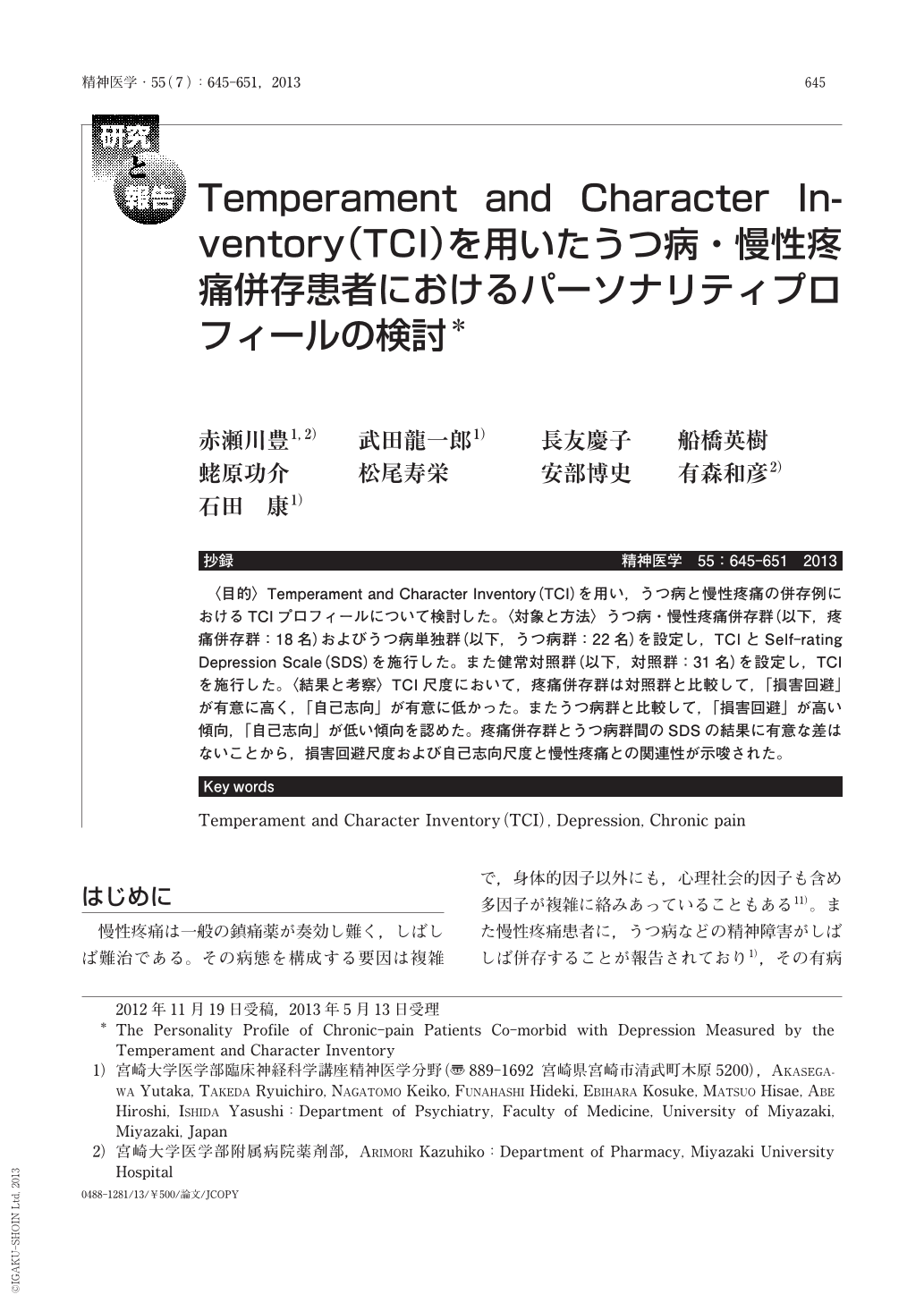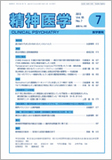Japanese
English
- 有料閲覧
- Abstract 文献概要
- 1ページ目 Look Inside
- 参考文献 Reference
抄録
〈目的〉Temperament and Character Inventory(TCI)を用い,うつ病と慢性疼痛の併存例におけるTCIプロフィールについて検討した。〈対象と方法〉うつ病・慢性疼痛併存群(以下,疼痛併存群:18名)およびうつ病単独群(以下,うつ病群:22名)を設定し,TCIとSelf-rating Depression Scale(SDS)を施行した。また健常対照群(以下,対照群:31名)を設定し,TCIを施行した。〈結果と考察〉TCI尺度において,疼痛併存群は対照群と比較して,「損害回避」が有意に高く,「自己志向」が有意に低かった。またうつ病群と比較して,「損害回避」が高い傾向,「自己志向」が低い傾向を認めた。疼痛併存群とうつ病群間のSDSの結果に有意な差はないことから,損害回避尺度および自己志向尺度と慢性疼痛との関連性が示唆された。
Purpose:The aim of the present research was to investigate the personality profile in cases of chronic pain co-morbid with depression.
Method:Eighteen patients presenting with chronic pain co-morbid with depression (pain & depression group) were compared to 22 patients with depression only (depression group), and to 31 healthy people (control group). All participants were examined and their personality profiles were measured by the Temperament and Character Inventory (TCI).
Results:For the participants of the pain & depression and the depression groups, the Harm Avoidance (HA) scale scores were significantly higher and the Self-Directedness (SD) scale scores were significantly lower than those of the healthy control group. Furthermore, for those in the pain & depression group, the HA1 (one of the HA subscales) scores were significantly higher and the SD2 (one of the SD subscales) scores were significantly lower than those of both the depression and healthy control group.
Conclusion:Patients presenting with chronic pain co-morbid with depression might have different personality profiles, at least, for those aspects of personality assessed by the HA and SD subscales, compared with patients with depression only and control group individuals.

Copyright © 2013, Igaku-Shoin Ltd. All rights reserved.


